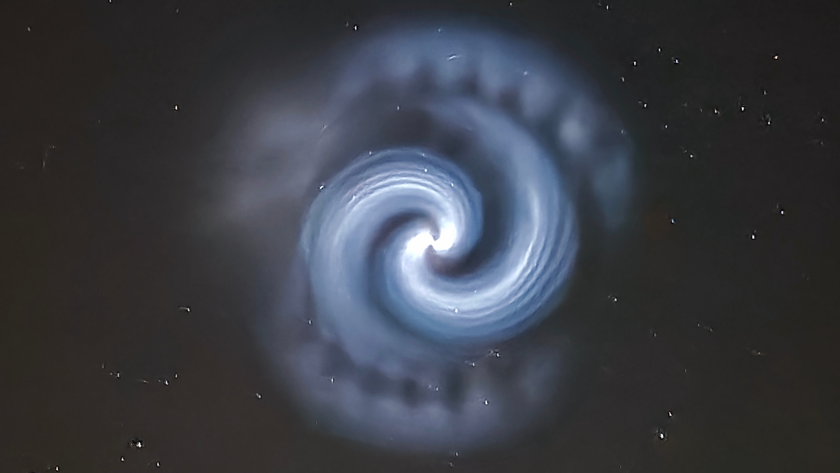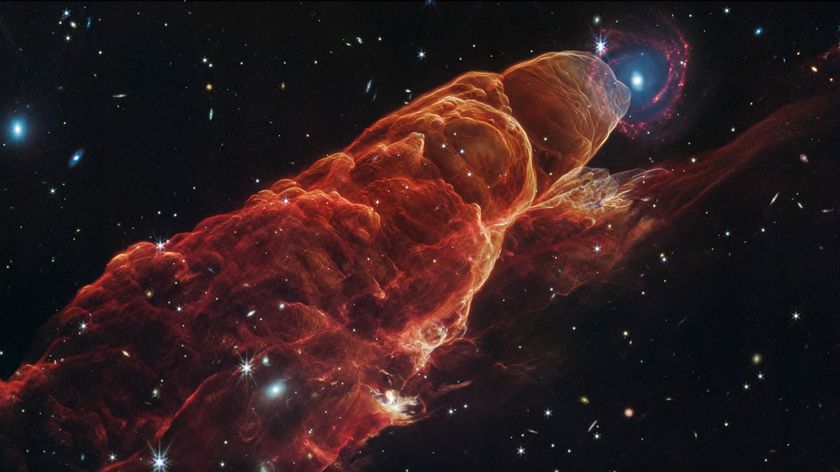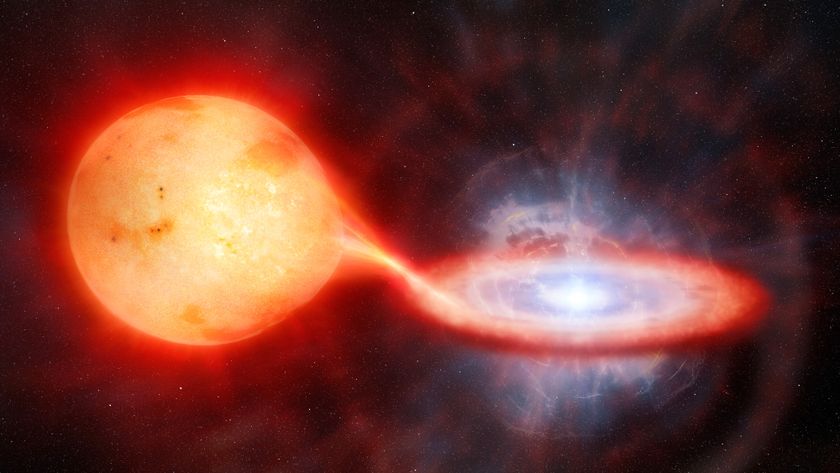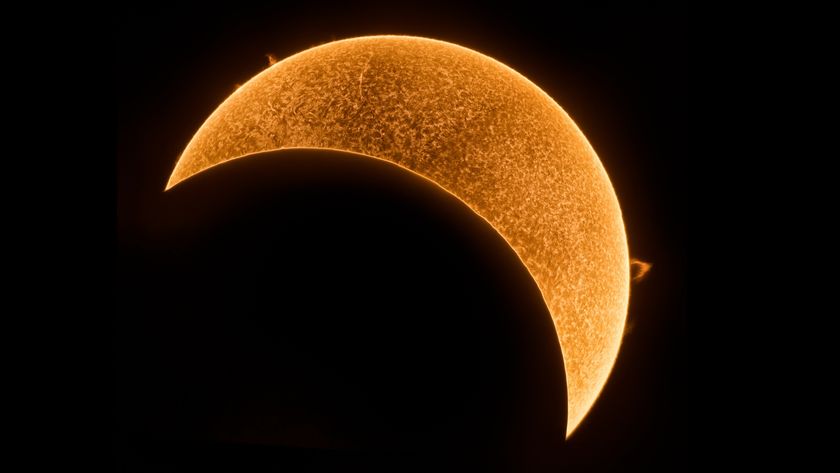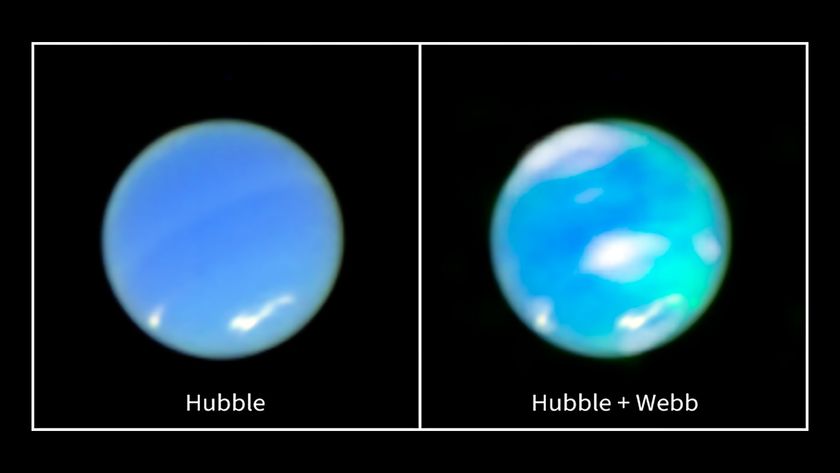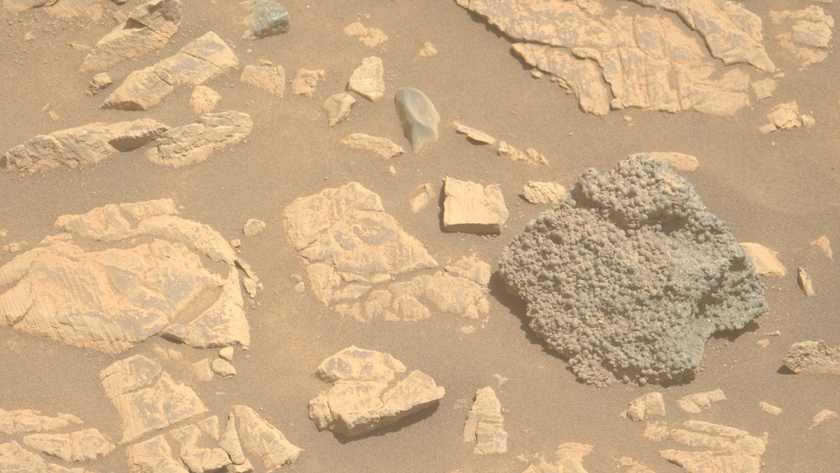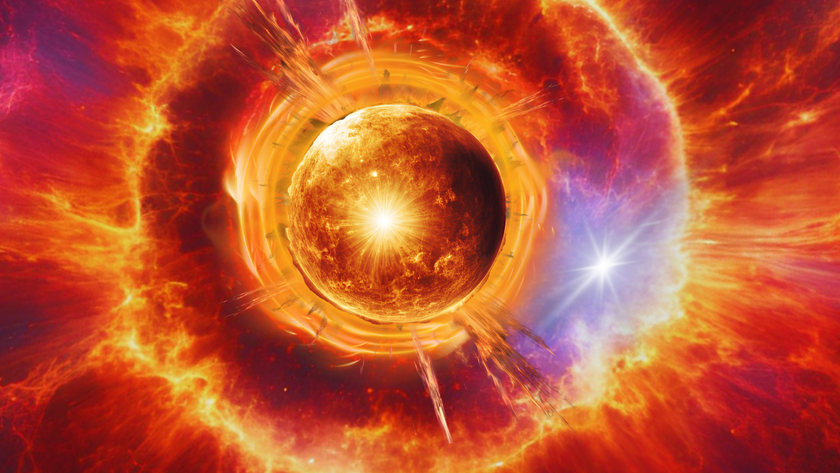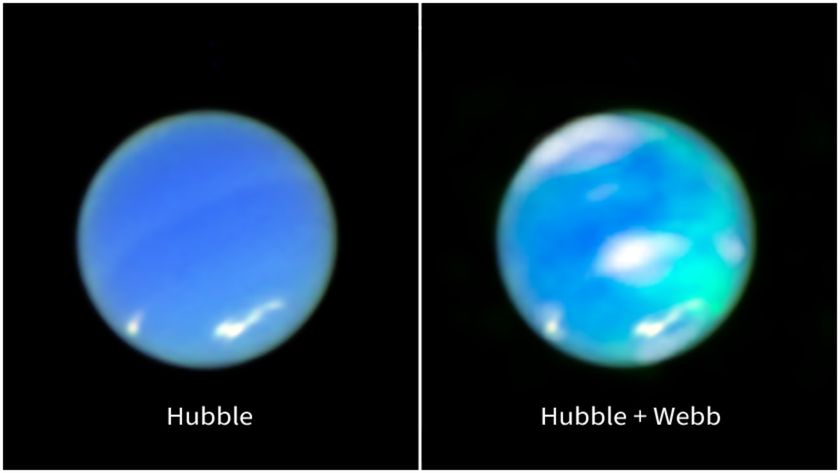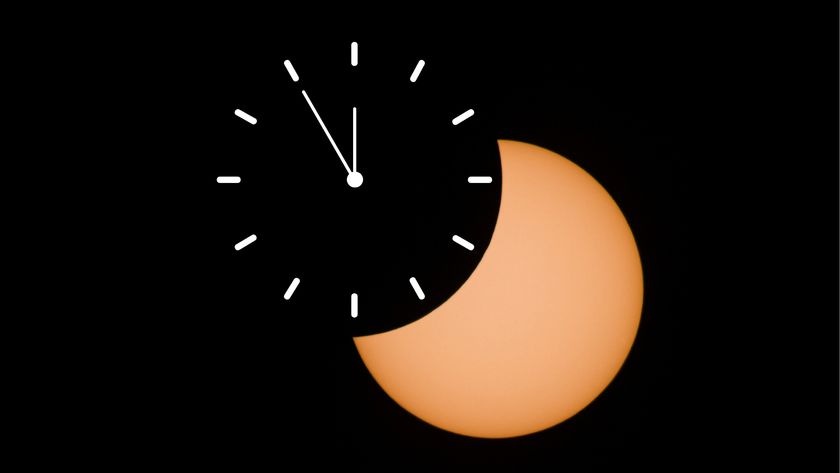Destination Pluto: NASA's New Horizons Mission in Pictures
Styx Band Members and Showalter

Styx band members share laughs with the scientist who discovered Styx, a moon of Pluto. Left to right: Lawrence Gowan, Tommy Shaw, New Horizons' Mark Showalter, and Todd Sucherman
Styx and Stern
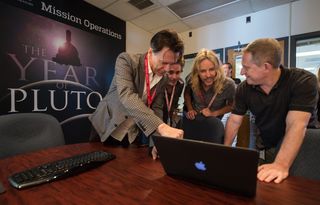
Styx and Stern: Styx band members are intrigued by the latest images of Pluto and Charon from New Horizons. Left to right: Lawrence Gowan, Todd Sucherman, Tommy Shaw, New Horizons principal investigator Alan Stern.
Pluto and Charon on Jan. 25, 2015
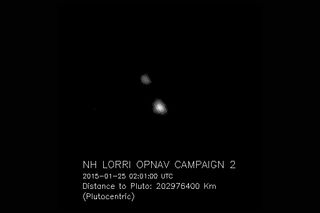
Pluto and Charon, the largest of Pluto's five known moons, were seen Jan. 25, 2015, by the telescopic Long-Range Reconnaissance Imager (LORRI) on NASA's New Horizons spacecraft.
Pluto and Charon in Color
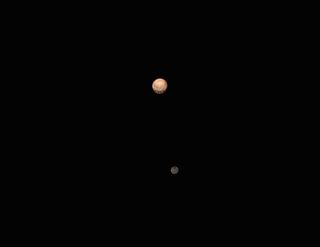
This color view of Pluto and its largest moon, Charon, was captured by NASA's approaching New Horizons spacecraft. The image is a still from a six-frame movie composed of photos New Horizons took between June 23 and June 29, 2015.
Mysterious Dark Spots on Pluto
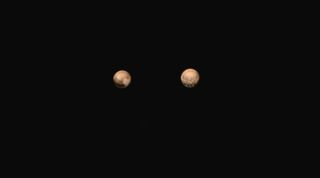
New Horizons scientists are puzzled by a series of evenly space dark splotches the spacecraft has spotted on Pluto.
Pluto's Mysterious Dark Spots
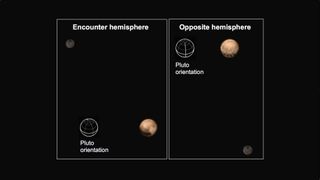
New color images from NASA’s New Horizons spacecraft show two very different faces of Pluto, one with a series of mysterious evenly spaced dark spots along the equator.
Pluto's Moons: Hazard Search Images
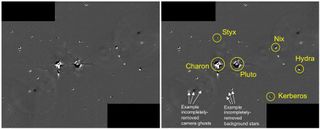
These images show the difference between two sets of 48 combined 10-second exposures with New Horizons' long-range camera, taken at on June 26, 2015, from a range of 21.5 million kilometers to Pluto. The known small moons, Nix, Hydra, Kerberos and Styx, are visible as adjacent bright and dark pairs of dots, due to their motion in the 105 minutes between the two image sets.
Get the Space.com Newsletter
Breaking space news, the latest updates on rocket launches, skywatching events and more!
New Horizons' Images of Pluto
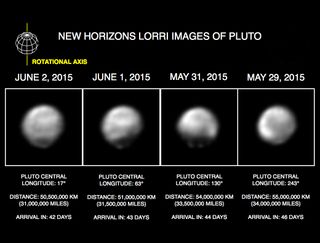
These images, taken by New Horizons' Long Range Reconnaissance Imager (LORRI), show four different "faces" of Pluto as it rotates about its axis with a period of 6.4 days. Read the Full Story
New Horizons' Image of Pluto Deconvolved
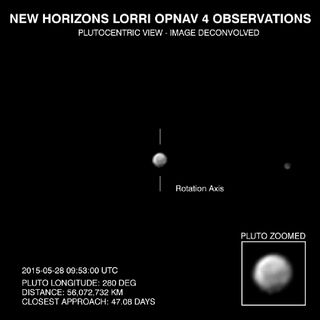
This view of Pluto, taken by NASA's New Horizons probe in late May 2015, begins to reveal surface details in the dwarf planet. Read the Full Story
Pluto's Moons: Size and Brightness

This illustration shows the scale and comparative brightness of Pluto’s four tiny moons, as observed by NASA's Hubble Space Telescope from 2005 through 2012. Pluto’s binary companion, Charon (discovered in 1978) is placed at the bottom for scale. The textures seen here are purely for illustration purposes.
Join our Space Forums to keep talking space on the latest missions, night sky and more! And if you have a news tip, correction or comment, let us know at: community@space.com.

Space.com is the premier source of space exploration, innovation and astronomy news, chronicling (and celebrating) humanity's ongoing expansion across the final frontier. Originally founded in 1999, Space.com is, and always has been, the passion of writers and editors who are space fans and also trained journalists. Our current news team consists of Editor-in-Chief Tariq Malik; Editor Hanneke Weitering, Senior Space Writer Mike Wall; Senior Writer Meghan Bartels; Senior Writer Chelsea Gohd, Senior Writer Tereza Pultarova and Staff Writer Alexander Cox, focusing on e-commerce. Senior Producer Steve Spaleta oversees our space videos, with Diana Whitcroft as our Social Media Editor.
